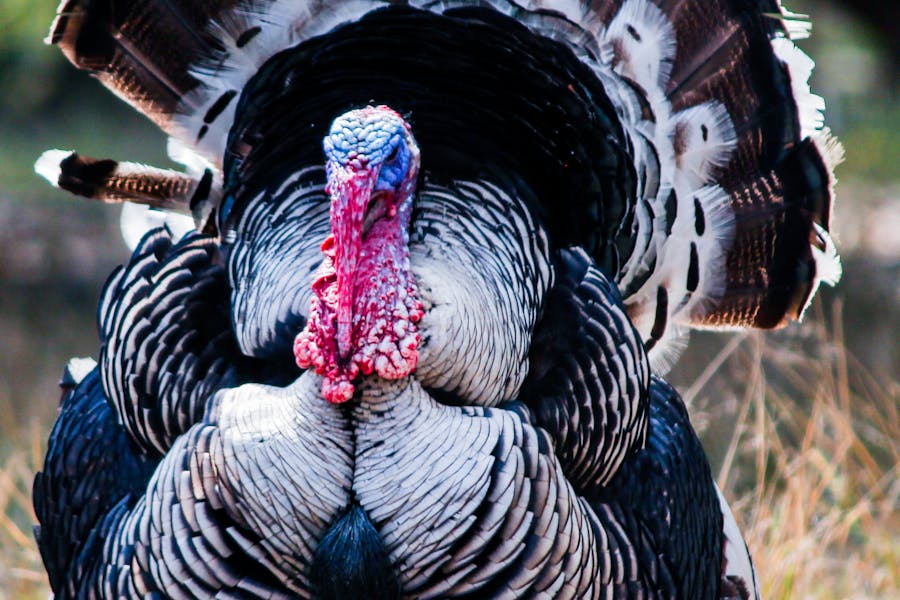Pregnancy is a crucial time for both the mother and the developing fetus, requiring careful attention to nutrition and food safety. As expectant mothers navigate their dietary choices, questions often arise about what foods are safe to eat. One common concern is, “Why can’t pregnant women eat turkey?” This article explores the reasons behind this recommendation, focusing on food safety and associated risks while offering insights for maintaining a healthy diet during pregnancy.
Understanding the Importance of Food Safety During Pregnancy
During pregnancy, food safety becomes especially vital. Pregnant women are more susceptible to foodborne illnesses due to changes in their immune system. Consuming contaminated food can lead to severe complications, including miscarriage, preterm labor, or severe illness in the newborn.
Common foodborne pathogens, such as Salmonella and Listeria, can pose significant risks. It’s essential for pregnant women to be informed about the potential dangers of certain foods, including turkey, to ensure both their health and that of their baby.
Health Risks Associated with Eating Turkey During Pregnancy
Foodborne Pathogens
Turkey, particularly when improperly handled or cooked, can harbor harmful bacteria. The most common pathogens associated with turkey include:
- Salmonella: Often found in undercooked or contaminated poultry, Salmonella can cause food poisoning with symptoms such as diarrhea, fever, and abdominal cramps. In pregnant women, this can lead to severe dehydration and complications for the fetus.
- Listeria: This bacteria can thrive in cold environments and is commonly found in deli meats and unpasteurized dairy products. Listeriosis can cause miscarriage, premature labor, and severe illness in newborns. Pregnant women are particularly susceptible due to their altered immune response.
Consequences of Foodborne Illness
Foodborne illnesses can have severe consequences for pregnant women, including:
- Miscarriage: Certain infections can lead to miscarriage, especially in the first trimester.
- Preterm Labor: Some pathogens can trigger preterm labor, leading to early delivery.
- Severe Illness: Foodborne infections can result in hospitalization and long-term health issues for both the mother and baby.
Understanding these risks is critical for making informed dietary choices during pregnancy.
Safe Turkey Consumption Guidelines
If a pregnant woman chooses to consume turkey, it’s crucial to follow specific safety guidelines to minimize risk.
Cooking Guidelines
Cooking turkey properly is vital to ensuring it is safe to eat. Here are key guidelines:
- Cook to Safe Temperatures: Turkey should be cooked to an internal temperature of 165°F (74°C). This temperature is high enough to kill harmful bacteria that may be present.
- Use a Food Thermometer: Always use a food thermometer to check the internal temperature of the turkey, especially in the thickest parts.
- Avoid Cross-Contamination: Use separate cutting boards and utensils for raw turkey and other foods. Wash hands thoroughly after handling raw poultry.
Handling and Storage
Proper handling and storage are essential for preventing foodborne illnesses:
- Refrigeration: Keep turkey refrigerated at 40°F (4°C) or below to prevent bacterial growth. Leftover turkey should be stored properly and consumed within three to four days.
- Thawing: Thaw turkey in the refrigerator, cold water, or microwave, but never at room temperature, as this can encourage bacterial growth.
Types of Turkey and Their Risks
Deli Meats vs. Cooked Turkey
When it comes to turkey consumption during pregnancy, not all turkey products are created equal:
- Deli Meats: Pregnant women are often advised to avoid deli meats, including turkey, due to the risk of Listeria. Even if the turkey is fully cooked, deli meats can be contaminated during processing or packaging.
- Cooked Turkey: Fully cooked turkey, such as home-roasted turkey or properly cooked turkey dishes, can be safer options as long as they are prepared and handled correctly.
Frozen and Pre-Packaged Turkey Products
Frozen or pre-packaged turkey products should also be approached with caution:
- Read Labels: Check the labels for any warnings about the product’s safety and ensure it is fully cooked before consumption.
- Follow Cooking Instructions: Always follow the manufacturer’s cooking instructions to ensure the turkey reaches a safe temperature.
Alternative Protein Sources for Pregnant Women
Pregnant women should ensure they are getting adequate protein in their diets, even if they avoid turkey. Here are some safe and nutritious alternatives:
- Chicken and Fish: Lean meats like chicken, cooked fish, and seafood are excellent sources of protein. Ensure fish is low in mercury.
- Legumes: Beans, lentils, and chickpeas are great plant-based protein sources rich in fiber and other essential nutrients.
- Dairy Products: Low-fat dairy products like yogurt and cheese provide protein and calcium, crucial for the developing baby.
- Nuts and Seeds: Almonds, walnuts, and chia seeds are nutritious snacks that offer protein and healthy fats.
Tips for Safe Eating Out
When dining out or attending social gatherings, pregnant women can still enjoy turkey safely:
- Ask About Preparation: Inquire how the turkey is cooked and if it has reached the appropriate temperature.
- Choose Cooked Over Deli: Opt for cooked turkey dishes rather than deli sandwiches or cold cuts to minimize risks.
- Trust Your Instincts: If something seems off about the food or preparation methods, it’s best to avoid it.
When to Consult a Healthcare Professional
Pregnant women must communicate with their healthcare provider about dietary concerns. Signs that warrant a consultation include:
- Persistent Symptoms: If you experience symptoms of foodborne illness such as vomiting, diarrhea, or fever, seek medical advice.
- Dietary Restrictions: Discuss any dietary restrictions or concerns you have regarding turkey or other foods.
- Health History: If you have a history of complications during pregnancy, your doctor can provide personalized guidance.
Conclusion
The question, “Why can’t pregnant women eat turkey?” highlights significant food safety concerns related to turkey consumption during pregnancy. While turkey can be a nutritious protein source, it carries risks of foodborne illnesses that can have serious consequences for both the mother and her baby.
By understanding these risks and following safety guidelines for cooking and handling turkey, pregnant women can make informed choices. It’s also essential to consider alternative protein sources and maintain open communication with healthcare providers about dietary concerns during pregnancy.
FAQ’s
- Why is turkey considered unsafe for pregnant women?
A. Turkey can harbor harmful bacteria such as Salmonella and Listeria, which pose risks of foodborne illness during pregnancy. - Can I eat fully-cooked turkey while pregnant?
A. Yes, fully cooked turkey can be safe to eat if prepared and handled correctly, but it’s important to avoid deli meats and undercooked poultry. - What are the symptoms of foodborne illness to watch for?
A. Symptoms may include nausea, vomiting, diarrhea, abdominal cramps, and fever. If you experience these symptoms, consult your healthcare provider. - Are there safe alternatives to turkey for protein during pregnancy?
A. Yes, safe alternatives include chicken, fish, legumes, dairy products, and nuts, which provide essential nutrients without the associated risks of turkey. - What cooking methods ensure turkey is safe to eat?
A. Always cook turkey to an internal temperature of 165°F (74°C) using a food thermometer and follow proper handling and storage practices to prevent contamination.









